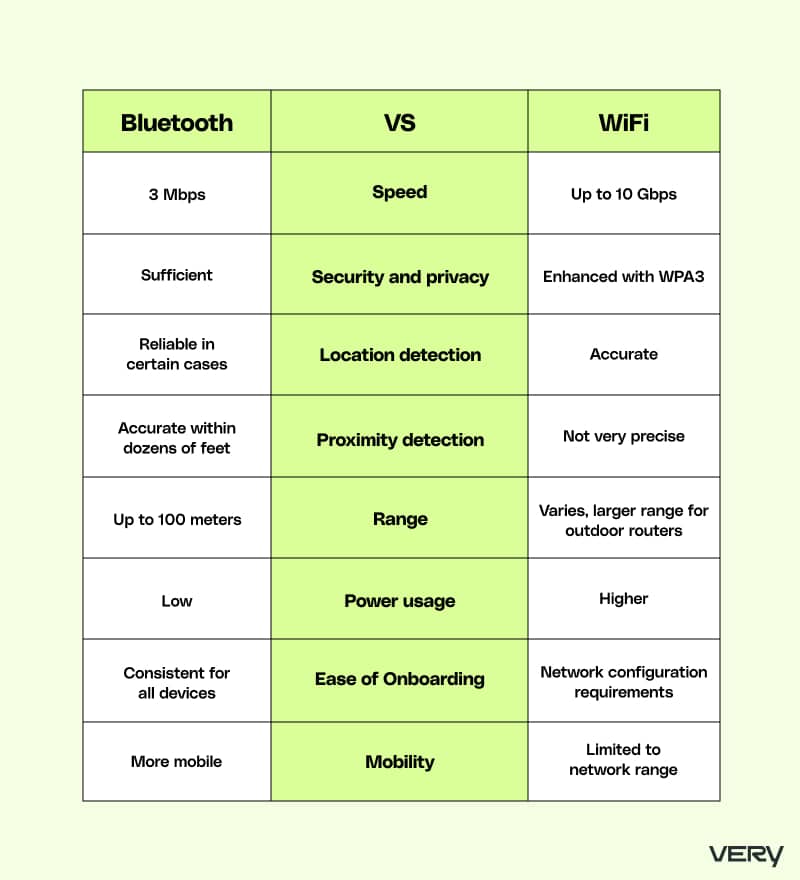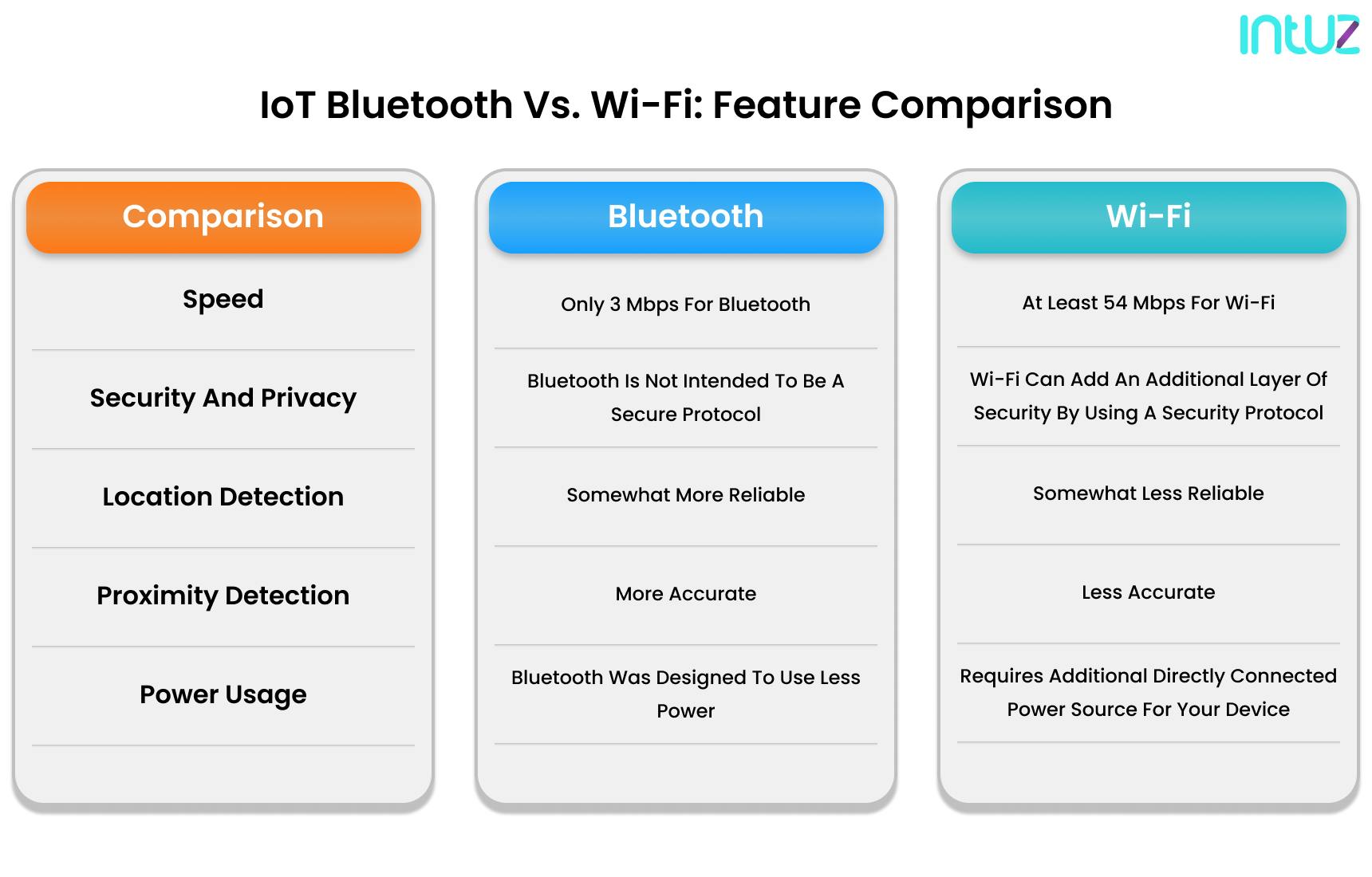Exemplary Info About Can Bluetooth Interfere With Wi-Fi

Trådlöst Headset Är Bluetooth Alltid Rätt? Blog
Can Bluetooth Actually Mess With Your Wi-Fi? Let's Get Real.
1. Decoding the Wireless Wrangle
Ever notice your internet acting up when you're jamming out to tunes on your Bluetooth headphones? You're not alone! The question, "Can Bluetooth interfere with Wi-Fi," is a valid one, and the answer, surprisingly, is often yes — at least a little bit. It's not always a massive internet apocalypse, but it can definitely put a damper on your online experience.
Think of it like this: your Wi-Fi and Bluetooth devices are like neighbors in a crowded apartment building. They're both vying for the same airwaves, specifically the 2.4 GHz frequency band. Now, imagine if both neighbors are having a loud party at the same time. Things might get a little noisy and congested, right? That's essentially what happens when Bluetooth and Wi-Fi start competing for bandwidth.
The good news is that modern technology is getting smarter. Many devices now use Bluetooth 5.0 or later, which is more efficient and less likely to cause significant interference. However, older devices, or a high density of devices all operating in the same space, can still create a bit of a wireless traffic jam. It's like having a vintage car trying to merge onto a modern freeway — it might struggle a bit.
So, while it's not a guaranteed connectivity catastrophe, Bluetooth can indeed interfere with Wi-Fi. Understanding why it happens is the first step to figuring out how to minimize the impact. We'll dive deeper into that in just a bit!

Why Does This Wireless Feud Even Happen?
2. Understanding the Frequency Fray
To really understand why Bluetooth and Wi-Fi sometimes clash, we need to peek under the hood and see how they communicate. Both technologies primarily use the 2.4 GHz frequency band. This is a popular slice of the radio spectrum because it offers a good balance of range and data transfer speed. Think of it like a popular highway that everyone wants to use.
The problem is, this highway can get congested. Bluetooth and Wi-Fi devices are constantly sending and receiving data, and if they're both trying to transmit at the same time on the same channel, you get interference. This interference can manifest as slower Wi-Fi speeds, dropped connections, or even audio stuttering in your Bluetooth headphones. It's kind of like rush hour traffic — everything slows down.
Another factor is the type of Bluetooth and Wi-Fi technology being used. Older versions of Bluetooth are more prone to interference than newer versions. Similarly, older Wi-Fi standards (like 802.11b/g) are less efficient at handling interference than newer standards (like 802.11ac/ax). So, if you're rocking a bunch of outdated gadgets, you might experience more wireless woes.
In short, the shared frequency band and the efficiency of the devices involved are the main culprits behind Bluetooth and Wi-Fi interference. It's a bit like two people trying to have a conversation in a crowded room — it can be hard to hear each other clearly.

So, What Can You Actually Do About It?
3. Tips and Tricks to Tame the Interference
Alright, so now that we know why Bluetooth and Wi-Fi can butt heads, let's talk about how to prevent it from ruining your Netflix binge. Thankfully, there are several steps you can take to minimize interference and keep your wireless world running smoothly.
First, consider upgrading your devices. If you're using older Bluetooth or Wi-Fi hardware, upgrading to newer versions can make a significant difference. Newer technologies are designed to be more efficient and less prone to interference. It's like swapping out an old clunker for a sleek new sports car — the performance difference is noticeable.
Another simple trick is to move your devices closer to your router. The further away you are from your router, the weaker the Wi-Fi signal becomes, making it more susceptible to interference. Think of it like trying to hear someone whispering across a large room. The closer you are, the easier it is to hear them.
You can also try changing your Wi-Fi channel. Most routers operate on one of several different channels within the 2.4 GHz band. Some channels are more congested than others. Using a Wi-Fi analyzer app on your smartphone or computer, you can identify the least congested channel in your area and switch your router to that channel. This is like finding a less crowded route to your destination — it can help you avoid traffic jams.
Finally, if possible, try using the 5 GHz Wi-Fi band instead of the 2.4 GHz band. The 5 GHz band is less crowded and less prone to interference from Bluetooth devices. However, the 5 GHz band has a shorter range than the 2.4 GHz band, so it might not be suitable for all situations. Think of it as taking a scenic route that's less traveled but might take a bit longer.

Beyond the Basics
4. Going the Extra Mile for a Seamless Connection
Okay, so you've tried the basic tips and tricks, but you're still experiencing some wireless interference? Don't despair! There are a few more advanced techniques you can try to further optimize your network and minimize the impact of Bluetooth on your Wi-Fi.
One option is to invest in a dual-band or tri-band router. These routers operate on both the 2.4 GHz and 5 GHz bands, allowing you to connect different devices to different bands. You could, for example, connect your Bluetooth headphones to the 2.4 GHz band and your laptop to the 5 GHz band, reducing the amount of congestion on each band. It's like having separate lanes for different types of traffic.
Another technique is to use a Wi-Fi mesh network. A mesh network consists of multiple Wi-Fi access points that work together to create a seamless wireless network throughout your home. Mesh networks can help to improve Wi-Fi coverage and reduce interference by automatically routing traffic around congested areas. It's like having a team of traffic controllers who are constantly optimizing the flow of traffic.
You might also consider upgrading your Bluetooth adapter. Some Bluetooth adapters are more resistant to interference than others. Look for adapters that support Bluetooth 5.0 or later, as these versions are designed to be more efficient and less prone to interference. It's like upgrading to a more fuel-efficient engine that's less likely to stall in traffic.
Finally, be mindful of the placement of your devices. Keep your router away from other electronic devices that could cause interference, such as microwaves and cordless phones. Also, try to keep your Bluetooth devices as close as possible to the device they're connected to. This can help to improve the signal strength and reduce the likelihood of interference. Think of it as minimizing the distance between two people who are trying to have a conversation in a noisy environment.

Understanding Bluetooth And WiFi Can They Interfere How To
FAQ
5. Clearing Up the Wireless Confusion
Still scratching your head about Bluetooth and Wi-Fi interference? Here are some frequently asked questions to help clear things up:
Q: Will Bluetooth always interfere with my Wi-Fi?A: Not always. The extent of the interference depends on a number of factors, including the age and type of your devices, the distance between your devices and your router, and the amount of congestion on the 2.4 GHz band. However, it's always a possibility, especially with older equipment.
Q: Is 5 GHz Wi-Fi completely immune to Bluetooth interference?A: While 5 GHz Wi-Fi is less prone to interference from Bluetooth devices because they primarily operate on the 2.4 GHz frequency, it's not entirely immune. Other devices can still cause interference on the 5 GHz band, but the impact is generally less severe.
Q: I use Bluetooth for my mouse and keyboard. Will this significantly impact my Wi-Fi speed?A: Probably not significantly. Bluetooth mice and keyboards typically use very little bandwidth, so they're unlikely to cause a major slowdown in your Wi-Fi speed. However, if you're experiencing problems, it's always worth trying to use a wired mouse and keyboard to see if it makes a difference.
